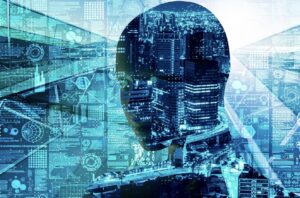Future Technology Trends
Artificial Intelligence Breakthroughs
Artificial Intelligence, the tour de force of modern technology, presents potential breakthroughs. AI’s purpose is to mimic human intelligence, with an aspiration to surpass it. It’s no longer a figment of science fiction, but a plausible part of today’s reality. Deep learning and neural networks, integral parts of AI, have been pioneering change, spearheading advances in natural language processing and image recognition. Robots, for instance, their functions powered by AI, exhibit a sophisticated understanding of human language. It’s evident in virtual personal assistants like Siri or Alexa. Furthermore, AI’s impact on healthcare can’t be overstated. Machine Learning, a subset of AI, aids in predicting diseases with high accuracy, revolutionizing the face of diagnosis and treatment.
Quantum Computing Advancements
Quantum Computing, while surreal to comprehend, is emerging as a technology with astounding potential.

Unlike classical computers, Quantum Computers make use of quantum phenomena—such as superposition and entanglement—to perform operations on data. In simple terms, Quantum Computers have the capacity for blazing-fast calculations that would take classical computers an immeasurable amount of time.
An example of this is the ‘quantum supremacy’ demonstrated by Google’s Sycamore Quantum Processor in 2019. It solved a computation in 200 seconds which would otherwise take the world’s most powerful supercomputer approximately 10,000 years!
Such advancements illustrate the transformative power of Quantum Computing, poised to redefine computations, data security, and problem-solving in the future.
Impact on Society and Industry
In line with emerging technology trends, significant transformations are expected across multiple fields, with key shifts in sectors such as healthcare and manufacturing. The integration of Artificial Intelligence and Quantum Computing promises to usher in an era of accelerated innovation and productivity, affecting the dynamics of society and various industries.
Changes in Healthcare
Considering healthcare, advancements in artificial intelligence stand to revolutionize this field substantially.

For instance, AI-backed technologies are facilitating precise diagnosis, enabling personalized patient treatment, and optimizing health services management. Prediction models built on deep learning are aiding in identifying critical health issues, such as cancer and heart diseases, much earlier.
By analyzing patterns in intricate data sets, these models are improving accuracy and reducing false positives. Moreover, the use of AI chatbots and virtual health assistants offers 24/7 patient support, answering queries and assisting in appointment scheduling.
Automation in Manufacturing
Moving on to manufacturing, automation backed by AI and Quantum computing is set to transform this industry. The employment of smart machines and robots can undertake complex tasks with more efficiency and less waste, leading to significant cost savings. Advanced robotic systems, equipped with deep learning capabilities, can recognize patterns, adapt to varying scenarios, undertake precise actions, and enhance the speed of production. For instance, machine vision systems, backed by AI, facilitate quality control by identifying defects in products in real-time, enabling timely corrective action.
Furthermore, predictive maintenance powered by AI is enabling companies to predict when equipment may fail or require service, reducing downtime and unexpected production halts. Additionally, Quantum Computing can solve complex manufacturing problems with a higher efficiency compared to classical computing, improving decision-making processes in supply chain management, and production planning.
Sustainability and Green Technologies
Renewable Energy Innovations
Renewable energy technology innovations are accelerating the global energy transition. These aim to optimize energy generation, usage, and storage, decreasing dependence on fossil fuels, and subsequently reducing carbon emissions.

For example, researchers integrate artificial intelligence into renewable energy systems to facilitate optimum energy utilization.
AI in smart grids, for example, manages energy distribution effectively, and correspondingly, reduces power wastage.
Simultaneously, advancements in energy storage technologies, such as transforming extra solar and wind energy into hydrogen, are improving the reliability of renewable energy, ensuring its usability even during unfavorable weather conditions.
Eco-friendly Building Materials
The shift towards sustainability extends into the architecture sector, with innovations in eco-friendly building materials changing the landscape of the construction industry.
One such innovation is the development of low-impact concrete, which can absorb CO2 during its curing process, limiting its carbon footprint. Another notable invention is the incorporation of bio-based materials in construction, like Mycelium, a fungal biomass known for its high insulation and fire resistance properties.
Thus, these technological advancements in renewable energy and eco-friendly building materials reaffirm the rising trend of sustainability in our future.

